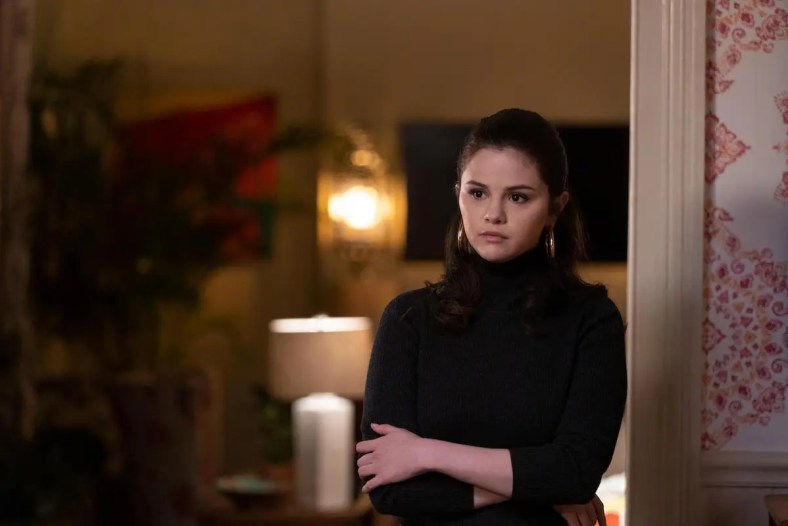The AI-generated song “Heart On My Sleeve” is taking the internet by storm, which is cool and terrifying depending on how you look at it. This new track uses clone voices of Drake and The Weeknd, and has them throwing some serious shade at singer/actress Selena Gomez. The Weeknd and Gomez dated from 2015 to 2017, and the song accuses her of infidelity.

Though, the creator of the song has been fairly transparent that it is fake. On April 15th TikToker ghostwriter977 posted a video of themselves with a sheet and sunglasses covering their face. [writer’s note: it looks like there may have been a test post of the song done on April 14th, so some sources vary on the date.] The text on the screen explains that the song is AI generated and provides the lyrics for it. The user has six other videos all featuring the song but also clarifying that it is not real.
All of the videos also give TikTok’s standard “link in bio” speel and that’s where this gets even weirder. Ghostwriter977’s bio claims “im just getting started.” before providing a link to a Laylo page. If you go to that page you’ll be asked for a phone number to be sent the song. Which is kind of weird, since most artists wanting more views will just link to the song directly.
Mitchell Cohen of AppSumo, a marketplace for creators and entrepreneurs, may have a theory on why this is. When he explored Laylo further he discover the company “powers drops for some of the world’s biggest creators and brands.” And “Heart On My Sleeve” was certainly a big drop, like everything [clone] Drake and The Weeknd do. Cohen also found a post from Laylo founder Alec Ellin made two to three days prior to the song’s release. “AI generated podcasts are coming soon and they’re going to be dope,” the post reads “Make me a 30 minute podcast about the rise of Kendrick Lamar, told in the voice and perspective of Dr Dre.”
So, the biggest theory right now is that Laylo and ghostwriter977 are one and the same. And that this is some huge publicity stunt to gain impressions for the brand. Which was clearly a success given how strong of a proof of concept this is. “This is the 1st example of AI generated music that *really* wowed me,” tweeted Mckay Wrigley, an AI developer. While it’s far from perfect, there is some slurring and the quality is on the low end. It’s still really impressive/terrifyingly real considering it is all computer generated.
Neither Drake nor The Weeknd has responded to “Heart On My Sleeve.” But Drake has been vocal about not liking his voice being cloned in the past. “This is the final straw AI,” he posted on Instagram, after seeing a video where he appeared to be rapping the Ice Spice track “Munch (Feeling U).”

Universal Music Group has already been trying to block AI programs from using streaming services including Spotify and Apple Music. Asking them to prevent artificial intelligence companies from accessing their libraries, since it is believed companies have been using their libraries to “train” software. “We will not hesitate to take steps to protect our rights and those of our artists,” UMG warned in the email. While AI may be an interesting tool for artists to use. There is an overwhelming fear that this kind of technology may replace human artistry.
A coalition of musicians and artists have launched a “Human Artistry Campaign” that aims to ensure artificial intelligence will not erode human creativity. It is backed by the Recording Industry Association of America, the Association for Independent Music, and the British Phonographic Industry. They are attempting to establish best practices for AI-generated music. They also believe that things like copyright protection should only be for music created by humans.
“There is so much potential with AI but it also presents risks to our creative community,” said Recording Academy CEO Harvey Mason Jr. “It’s crucial that we get this right early on so we don’t risk losing the artistic magic that only humans can create.”






![“Undertone” is Edge-of-Your-Seat Nightmare Fuel [Review]](https://i0.wp.com/nerdbot.com/wp-content/uploads/2026/02/undertone-Still_1-scaled.jpg?fit=450%2C253&ssl=1)